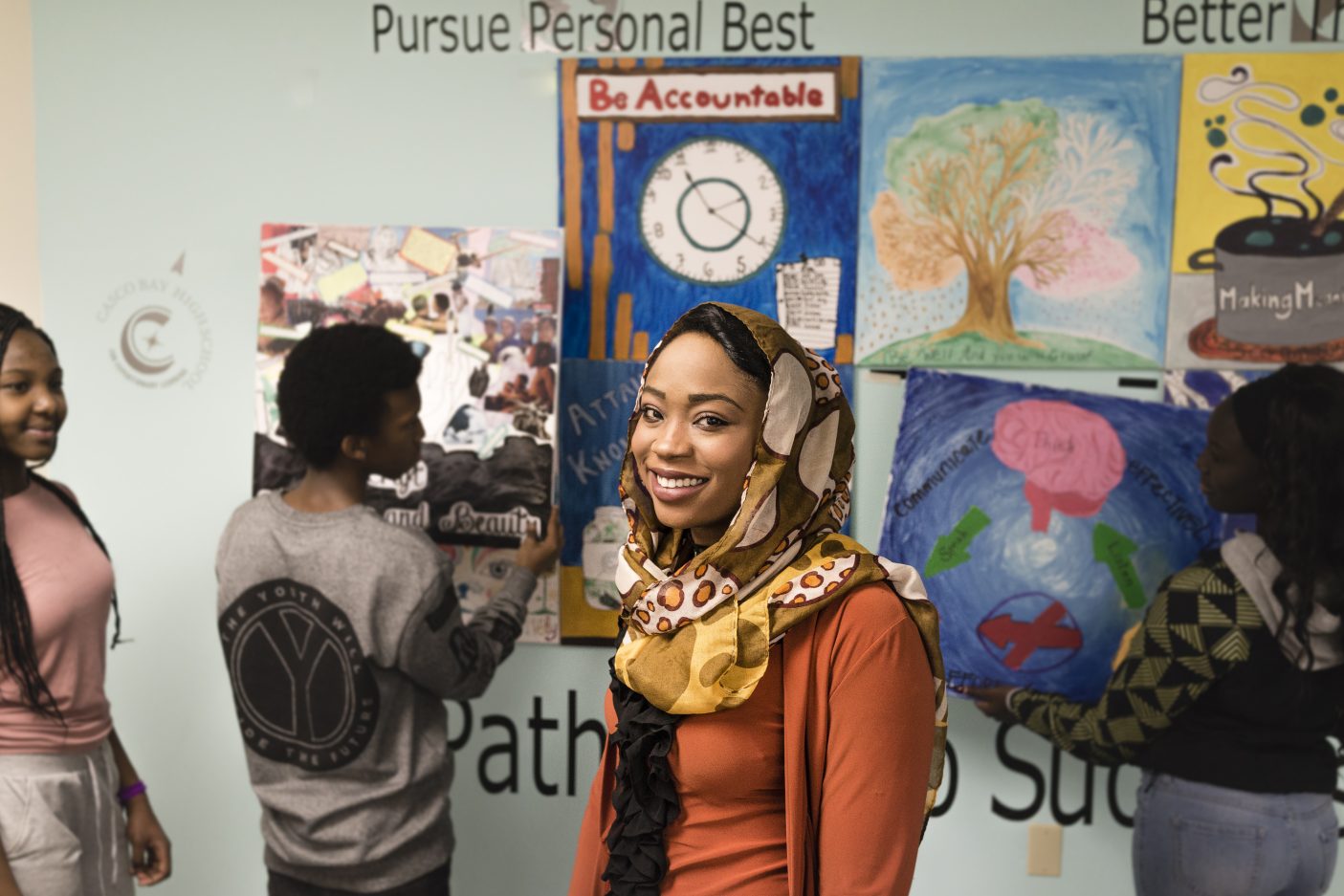In Maine, Ekhlas gives back to the community that gave her hope
Ekhlas couldn’t speak a word of English when she was first resettled.
Twelve years later she’s earning her master’s degree and giving back.
Ekhlas Ahmed, 25, first learned the English alphabet as a high school freshman. Despite missing two years of school after fleeing conflict in Darfur, Sudan, she went from English-learner to graduate student in half the time of many of her peers. Now she dreams of using the education she earned to help women and girls around the world get the education they deserve.
“I really believe that education gives people the opportunity to overcome obstacles, stereotypes and hardships they’ve endured in the past. Education not only opens doors, it opens minds. But if you don’t feel safe it’s so hard to learn.”
As a graduate student, Ekhlas is aware of the incredible opportunities education can provide. But as a young refugee in Egypt, she also experienced the hopelessness of missing out on two essential years of school.
Ekhlas and her family are from Darfur – a region in the sub-Saharan country of Sudan whose name has become synonymous with intractable civil war and vicious atrocities. Ekhlas, her parents, and her three younger brothers fled to Egypt where they applied for asylum and waited for an opportunity to begin their lives again.
Their case was eventually referred for resettlement by UNHCR, and after two years of security screenings and interviews, they were accepted by the United States. In 2005, they were resettled to Portland, Maine.
“Being resettled gave me a chance. It gave me hope again. It gave me an opportunity to find myself and accomplish my dream of getting my degree and getting educated. It gave me a voice that I’m able use everywhere I go to advocate.”
But while her family’s most painful struggles ended when they moved to the United States, there were still many new challenges ahead. When they first arrived in Maine, for example, no one in Ekhlas’ family spoke English.
“We felt like strangers, especially when you don’t speak the language, you can’t express your feelings. You don’t just feel hopelessness — you just feel like you don’t belong.”
But with the help of her community, she was able to achieve her goals of learning English and continuing her education. “Now I am not only able to speak the language, but also teach the language.” Ekhlas says. “I was able to graduate from high school, graduate from college, and now in graduate school, I give back to the city of Portland because they have supported me for the longest time.”
While working towards her master’s degree in education, Ekhlas volunteers through Americorps as a teacher at the same high school where she first learned English and later earned her diploma.
“Many of the students I work with are refugees. There are so many challenges that they go through, so having a safe space is very important, and it’s our job as educators to provide that,” she says. “Because at the end of the day, refugees just want the same thing as anybody else — they want to live in a place that’s safe.”
When Ekhlas got the opportunity to learn, she used her education to help others. Her story exemplifies the incredible ways in which refugees can give back to their communities when given the chance to get an education.
“I have a better life because of someone’s hard work – someone volunteered their time to help me become who I am today. So that’s why I want to do my part to make it better for the next generation,” she said. “Because someone did that for me.”
Written by Arielle Moncure
Video by Armando Gallardo
More stories
Tinalbarka fled violence in Mali.
She dreams of becoming a lawyer.
Majid fled war in Iraq.
He dreams of a good education for his children.
Carmen fled violence in Colombia.
She hopes to inspire other women through her work.






